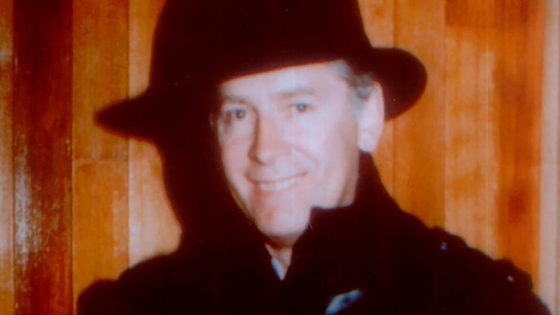Three fellow prison inmates charged in the brutal bludgeoning death of James (Whitey) Bulger, the wily and charismatic Boston gangster who had evaded a federal dragnet for 16 years, have agreed to a plea deal, according to a filing by federal prosecutors in West Virginia on Monday.
Fotios Geas, Paul J. DeCologero and Sean McKinnon faced murder and conspiracy charges after Mr. Bulger, 89, was found beaten to death in his cell in 2018, just hours after being transferred from a Florida lockup where he had been serving two consecutive life sentences for his role in 11 murders.
The details of the agreement were not disclosed. In a three-page motion, prosecutors said that the three men had agreed to “cooperate” with the government in preparing a report specifying the circumstances of Mr. Bulger’s killing at the Hazelton federal prison in Bruceton Mills, W.Va.
Prison officials had quickly identified Mr. Geas as a suspect in the immediate aftermath of the attack. After a four-year investigation, prosecutors said Mr. DeCologero, a Boston-area gang leader, also took an active role in battering Mr. Bulger, while Mr. McKinnon served as a lookout.
Calls to the U.S. attorney’s office and to lawyers for the men, who have all remained in federal custody, were not immediately returned.
On Oct. 30, 2018, less than 12 hours after Mr. Bulger, who used a wheelchair and was in failing health, was transferred to Hazelton from a Florida prison, security camera footage showed at least two inmates rolling Mr. Bulger out of view into a corner of a room.
There, law enforcement officials said, they beat him with a padlock stuffed inside a sock. When guards found Mr. Bulger — once the feared leader of the violent Winter Hill gang — he had been beaten so severely that he was nearly unrecognizable.
Guards undertook lifesaving measures, but Mr. Bulger was pronounced dead at the scene.
Mr. Geas, of West Springfield, Mass., is currently serving a life sentence for the 2003 killing of the leader of the Genovese crime family in Springfield. Mr. DeCologero has been serving a 25-year sentence for running a violent gang in the Boston area known as the DeCologero Crew, and was eligible for release in 2026 absent the new charges, according to court records.
At the Hazelton prison, Mr. Bulger was housed in the same unit as Mr. Geas, who was cellmates with Mr. McKinnon, of Montpelier, Vt. Mr. Bulger had initially been assigned to a cell with Mr. DeCologero, but was soon reassigned.
Mr. Bulger, who had been working as an F.B.I. informant, was accused of playing a role in the killings of 19 people, many of whom also met gruesome ends, including being strangled or bound in chains and shot at close range.
He disappeared in 1994 after a retired F.B.I. agent told him of an imminent indictment. He spent 16 years as a fugitive, a run that ended when he was arrested in Santa Monica, Calif., in 2011.
In 2014, he was sent to Coleman II, a federal prison in Central Florida, regarded as a relative safe haven for inmates needing additional protection. But after confrontations with prison staff members, Mr. Bulger spent a number of months in solitary confinement and was eventually transferred to the Hazelton prison.
After he was killed there almost immediately, several prison workers questioned the decision to transfer him to Hazelton, which housed inmates tied to organized crime, and also asked why he had been placed in the general inmate population there.
In December 2022, the inspector general of the Justice Department, an independent watchdog, determined that a remarkable chain of preventable administrative errors, incompetence and health system failures in the federal prison system had led to the killing.
The 65-page report from Michael E. Horowitz, the inspector general, found that officials in the federal Bureau of Prisons had changed Mr. Bulger’s official medical status for the sole purpose of clearing him for transfer after Mr. Bulger threatened a nurse at the secure unit in Florida where he had been housed — despite knowing that Mr. Bulger suffered from a life-threatening cardiac condition.
The report found that prison officials took no extra security precautions even though Mr. Bulger was widely known to have been a federal informant, which put him at heightened risk; and they subsequently allowed word of his arrival to spread to more than a hundred bureau employees and eventually to inmates, including those who beat him to death.
Source Agencies


